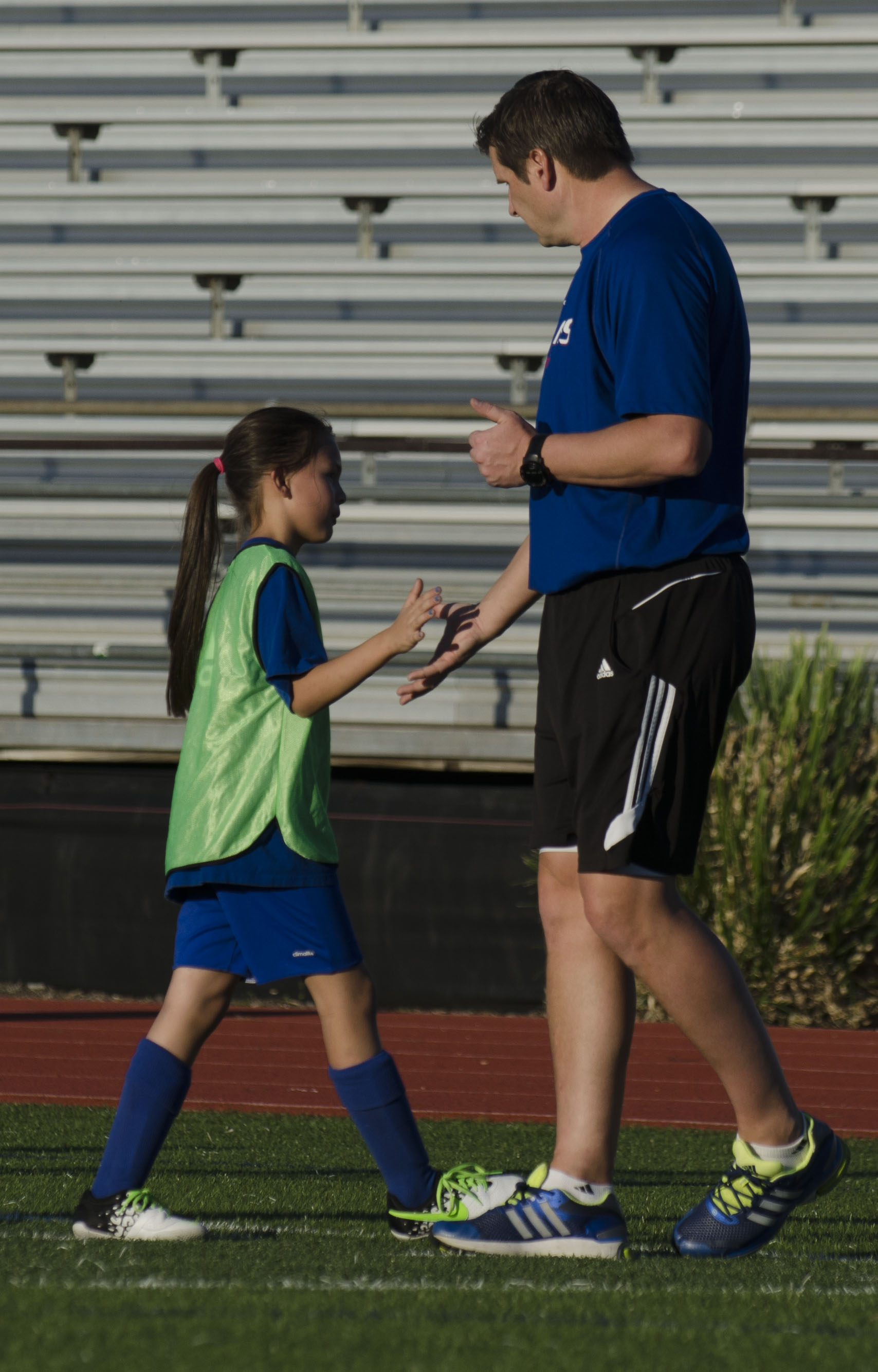
May 16, 2016 • 5 min read
5 Ways to Get Team Parents on Your Side
Posted in:
For coaches, challenges and stressors are plentiful. It’s a tough job, and there are people on the sidelines who can sometimes make it even tougher, whether or not they realize it. That’s right. I’m talking about parents.
Truth is, many of the coaches I’ve spoken to list parents as one of their top stressors. That’s because some parents try to interfere with coaching rather than help facilitate it. It can be tempting to simply ignore such behavior, but that won’t solve the problem. Instead, try these five solutions for getting parents on your side.
Establish Realistic Goals
 As a coach, it’s important to establish the team goals immediately. These goals should be no loftier than having youth sports contribute to a young athlete’s personal and social development, build self-esteem, learn transferable life skills and gain a lifetime love of sports. If young athletes achieve these goals, they are going to be happy and productive people. Any other goals, such as college scholarships or a professional career, are only icing the cake.
As a coach, it’s important to establish the team goals immediately. These goals should be no loftier than having youth sports contribute to a young athlete’s personal and social development, build self-esteem, learn transferable life skills and gain a lifetime love of sports. If young athletes achieve these goals, they are going to be happy and productive people. Any other goals, such as college scholarships or a professional career, are only icing the cake.
If a parent signed their child up for youth sports because they’re expecting a scholarship, that parent is not pursuing the right goals. Explain your philosophy to them and help them understand that not everyone can be a scholarship or professional athlete.
Communicate!
Creating opportunities for parents to provide input about their child’s progress can often resolve conflicts before they even begin. For example, you can establish “office hours” when parents can stop by or call to talk about their young athlete. These conversations are perfect for learning more about your parents——and for them to learn more about you.
In addition, you can provide regular written progress reports for parents detailing how their young athlete is developing physically, competitively and psychologically. They have a right to know, and doing so maintains a culture of respect. You respect your parents enough to provide them with this information, so they should respect you enough to let you coach in peace.
Try to See it From Their Point of View
Though there are some strong examples to the contrary, most parents are not mean, malicious or ill-intentioned. Most want the best for their children as players and young people. Unfortunately, when it comes to youth sports, many parents don’t properly understand what is best for their children. In other words, they are simply uneducated about how their actions influence their young athletes’ experience.
If a parent comes to you with a complaint, try to look at things through this lens. Remember that they’re coming from a place of concern for their child, not necessarily from a place of hostility. Keep cool and talk it out. You’ll be amazed at how many conflicts can be resolved simply by understanding where the other person is coming from.
Always Be Specific
 Generalities can often lead to misunderstandings, and misunderstandings can lead to conflict. Be specific in your expectations. Identify exactly how parents’ behavior helps or hurts their young athlete. For example, hugging and encouraging players whether they win or lose is good parenting. Screaming at referees and fighting with other parents is not.
Generalities can often lead to misunderstandings, and misunderstandings can lead to conflict. Be specific in your expectations. Identify exactly how parents’ behavior helps or hurts their young athlete. For example, hugging and encouraging players whether they win or lose is good parenting. Screaming at referees and fighting with other parents is not.
Also, specifically identify how parents’ behavior can aid or undermine your coaching. For instance, making sure players are properly equipped and on time for practice is expected. Criticizing the practice plan in front of the whole team is definitely not.
Get Parents Involved
Getting parents involved in the team is a great way to get them on your side. Enlist parents within your program for advice and guidance about issues that arise. Ask parents to help out with practice, so long as they understand that they’re there to support, not take over. If you feel that you work well together, you could even ask a parent or two if they’d like to be assistant coaches.
If you want to have a successful season, getting parents on your side is key. It isn’t easy, but putting in the work before the season starts will make for smooth sailing once the season begins. Keep working at it, and don’t give up!
Dr. Jim Taylor is an internationally recognized authority on the psychology of performance in business, sport, and parenting. Dr. Taylor has been a consultant for the United States and Japanese Ski Teams, the United States Tennis Association, and USA Triathlon, and has worked with professional and world-class athletes in tennis, skiing, cycling, triathlon, track and field, swimming, football, golf, baseball, and many other sports. See more of his blogs at www.drjimtaylor.com.
